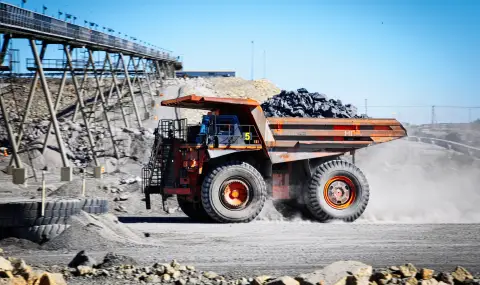"They are limiting the supply of many goods to Russia, but perhaps we should also think about certain restrictions - on uranium, titanium, nickel", said Russian President Vladimir Putin in mid-September, instructing the government to study the possibilities of limiting the export of a number of raw materials from the country.
Considering the Kremlin's attempts since 2022 to manipulate Europe through gas supplies in order to undermine its determination to support Ukraine, the Russian president's new threats do not seem incredible. And the US and the EU are used to buying the aforementioned raw materials from Russia in large volumes.
Uranium
The share of Russian enriched uranium for nuclear power plants in the world market exceeds 40 percent, and no one else supplies high-quality low-enriched uranium for new-generation reactors. The Russian state company “Rosatom“, which provides this uranium, has a share of over 20 percent in the US and about 30 percent in the EU. But for it itself, the markets of these countries are very important - revenues from the US are about two billion dollars a year, and from the EU - about 500 million dollars. In addition, Europe buys fuel for its nuclear power plants, built by Soviet and Russian specialists, from “Rosatom“. According to the company “Rosatom“ in 2023, Western countries have provided it with profits of over four billion dollars.
Breaking off relations with “Rosatom“ would be painful for both sides. That is why the company was until recently one of the few state-owned companies in Russia that did not fall under the impact of Western sanctions. Two large European companies - Urenco and Orano - are actively engaged in uranium enrichment, but they could provide the necessary quantities to the United States no earlier than five years, and to Europe - even later, nuclear expert Dmitry Gorchakov predicted to DW.
At the same time, in recent months, American companies have increased imports of enriched uranium from China - a country that had not previously provided this type of raw material to the United States. For this reason, there are suspicions that China is actually re-exporting uranium purchased from Russia, which at that time sharply increased supplies to its main trading partner. This case gives an idea of how things could develop if Russia completely stopped supplies: raw materials would still reach the American market - but through China or other countries.
Titanium
Just as the Russian nuclear industry is mainly concentrated in “Rosatom“, the production of titanium products in Russia is entirely the responsibility of the company “VSMPO-Avisma“ from the Sverdlovsk region - it is one of the world leaders in this field. Its share in titanium production is estimated at about 15 percent. The largest producer of this raw material is China, followed by Japan and Kazakhstan. There are no other major players on the world market.
Like “Rosatom“ and “VSMPO-Avisma“ is under US sanctions, but not the EU, because it is partly owned by the state-owned company "Rostec", which unites enterprises of the military-industrial complex. Moreover, despite the sanctions, American companies are still allowed to work with "VSMPO-Avisma" under certain conditions. The same is true of Canada - it has imposed sanctions on "VSMPO-Avisma", but they provide exceptions for local manufacturers of business jets Bombardier and the Canadian subsidiary of the Airbus concern.
Until Russia's invasion of Ukraine, the main consumers of Sverdlovsk's production abroad were the American company Boeing and the European concern Airbus. According to the "Washington Post", Boeing has since completely severed relations with "VSMPO-Avisma", but many of the American concern's other suppliers - such as those from France and the UK - still buy titanium in Russia. Airbus is known to have purchased titanium from Russia at least until November 2023 - there are no more recent data. All this has led to a decline in "VSMPO-Avisma" exports to Europe - in 2023 they amounted to $345 million, while a year earlier they were $370 million.
Nickel
The main Russian nickel producer "Norilsk Nickel" has long avoided sanctions: the US and the UK introduced restrictions only a month ago, and the EU has not done so yet. But the geography of the company's sales has changed radically since the beginning of the war - if before the main revenue came from Europe (over 50 percent), now the share of Asia has increased (up to 54 percent). However, the need to reorient supplies is not the only problem facing the Russian company.
In this case, we are talking about the newly emerged powerful competitor of Russia in this market - Indonesia. Its nickel deposits are much larger than Russia's, but the quality of production was inferior for a long time - until the technological breakthrough made by Chinese companies. They learned to process low-quality Indonesian ore into a first-class product, which allowed them to enter into direct competition with "Norilsk Nickel". The result - already in 2023, the Russian company's exports fell by 28 percent compared to 2021.
Suggesting that the Russian government consider limiting the export of strategic raw materials, Putin warned that "nothing should be done to one's own detriment". In the case of nickel, however, it seems that in the new conditions it can no longer be used as a geopolitical weapon.
Author: Oleg Khokhlov
